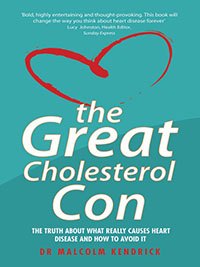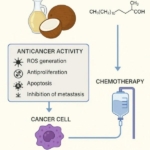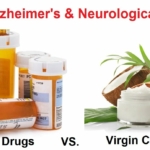Health Impact News Editor Comments
Four Japanese researchers published an analysis on cholesterol guidelines and statin drugs in the April 2015 edition of the Annals of Nutrition and Metabolism.
Dr. Malcolm Kendrick, the Scottish doctor who wrote The Great Cholesterol Con recently stated on his blog that he has read the entire 116 page review:
For many years I have told anyone who will listen that, if you have a high cholesterol level, you will live longer. Equally, if you have a low cholesterol level, you will die younger. This, ladies and gentlemen, is a fact. The older you become the more beneficial it is to have a high cholesterol level.
This fact has become more difficult to demonstrate recently as so many people have been put on statins that the association between cholesterol levels and mortality has been twisted, bent and pumelled into the weirdest shapes imaginable. However, Japan, provides some very interesting data.
The entire study can be read free online here.
Here is the Introduction:
High cholesterol levels are recognized as a major cause of atherosclerosis. However, for more than half a century some have challenged this notion. But which side is correct, and why can’t we come to a definitive conclusion after all this time and with more and more scientific data available? We believe the answer is very simple: for the side defending this so-called cholesterol theory, the amount of money at stake is too much to lose the fight.
The issue of cholesterol is one of the biggest issues in medicine where the law of economy governs. Moreover, advocates of the theory take the notion to be a simple, irrefutable ‘fact’ and self-explanatory. They may well think that those who argue against the cholesterol theory—actually, the cholesterol ‘hypothesis’— are mere eccentrics.
We, as those on the side opposing the hypothesis, understand their argument very well. Indeed, the first author of this supplementary issue (TH) had been a very strong believer and advocate of the cholesterol hypothesis up until a couple of years after the Scandinavian Simvastatin Survival Study (4S) reported the benefits of statin therapy in The Lancet in 1994. To be honest with the readers, he used to persuade people with high cholesterol levels to take statins. He even gave a talk or two to general physicians promoting the benefits of statins. Terrible, unforgivable mistakes given what we came to know and clearly know now.
In this supplementary issue, we explore the background to the cholesterol hypothesis utilizing data obtained mainly from Japan—the country where anti-cholesterol theory campaigns can be conducted more easily than in any other countries. But why is this? Is it because the Japanese researchers defending the hypothesis receive less support from pharmaceutical companies than researchers overseas do? Not at all. Because Japanese researchers are indolent and weak? No, of course not. Because the Japanese public is skeptical about the benefits of medical therapy? No, they generally accept everything physicians say; unfortunately, this is also complicated by the fact that physicians don’t have enough time to study the cholesterol issue by themselves, leaving them simply to accept the information provided by the pharmaceutical industry.
Reading through this supplementary issue, it will become clear why Japan can be the starting point for the anti-cholesterol theory campaign. The relationship between all-cause mortality and serum cholesterol levels in Japan is a very interesting one: mortality actually goes down with higher total or low density lipoprotein (LDL) cholesterol levels, as reported by most Japanese epidemiological studies of the general population. This relationship cannot be observed as easily in other countries, except in elderly populations where the same relationship exists worldwide.
The mortality from coronary heart disease in Japan has accounted for around just 7% of all cause mortality for decades; a much lower rate than seen in Western countries. The theory that the lower the cholesterol levels are, the better is completely wrong in the case of Japan—in fact, the exact opposite is true. Because Japan is unique in terms of cholesterol-related phenomena, it is easy to find flaws in the cholesterol hypothesis.
Based on data from Japan, we propose a new direction in the use of cholesterol medications for global health promotion; namely, recognizing that cholesterol is a negative risk factor for all-cause mortality and re-examining our use of cholesterol medications accordingly. This, we believe, marks the starting point of a paradigm shift in not only how we understand the role cholesterol plays in health, but also how we provide cholesterol treatment.
The guidelines for cholesterol are thus another area of great importance. Indeed, the major portion of this supplementary issue (from Chapter 4 onward) is given over to our detailed examination and critique of guidelines published by the Japan Atherosclerosis Society. We dedicate a large portion of this work to these guidelines because they are generally held in high regard in Japan, and the country’s public health administration mechanism complies with them without question. Physicians, too, tend to simply obey the guidelines; their workloads often don’t allow them to explore the issue rigorously enough to learn the background truth and they are afraid of litigation if they don’t follow the guidelines in daily practice.
These chapters clearly describe some of the flaws in the guidelines—flaws which are so serious that it becomes clear that times must change and the guidelines must be updated. Our purpose in writing this supplementary issue is to help everyone understand the issue of cholesterol better than before, and we hope that we lay out the case for why a paradigm shift in cholesterol treatment is needed, and sooner rather than later. We would like to stress in closing that we have received no funding in support of writing or publishing this supplementary issue and our conflicts of interest statements are given in full at the end.
The Statin Scam: Don’t Let it Ruin Your Health!
The statin scam has been exposed, but there are powerful sources at work in the medical system to keep it going.
One of the best documentaries exposing the statin scam and interviewing doctors in the industry who have exposed it, was published in 2013 on ABC in Australia. Take some time to watch these important documentaries produced by medical doctors on the statin drug scam, and be informed!
HEART OF THE MATTER Part 1: The Cholesterol Myth: Dietary Villains
HEART OF THE MATTER Part 2: The Cholesterol Drug War
References
1. Towards a Paradigm Shift in Cholesterol Treatment. A Re-examination of the Cholesterol Issue in Japan: Abstracts. – Ann Nutr Metab. 2015;66 Suppl 4:1-116.
2. Full Text from Karger.com
3. Hats off to the Japanese – Dr. Malcom Kendrick Blog, 5/18/2015
Comment on this article at Health Impact News.
See Also:
Statin Scam: People with Higher Cholesterol Live Longer than People with Low Cholesterol





 HHS Secretary Kennedy Breaks His Promise: "War on Saturated Fat" Kept in Tact with New U.S. Dietary Guidelines
HHS Secretary Kennedy Breaks His Promise: "War on Saturated Fat" Kept in Tact with New U.S. Dietary Guidelines Research Continues to Show Virgin Coconut Oil's Effectiveness in Treating Cancer
Research Continues to Show Virgin Coconut Oil's Effectiveness in Treating Cancer Coconut Oil Continues to Benefit Alzheimer's Patients over Drugs as Studies Continue for Neurological Benefits
Coconut Oil Continues to Benefit Alzheimer's Patients over Drugs as Studies Continue for Neurological Benefits How the Simple High-Fat Low-Carb Ketogenic Diet Continues to Change People's Lives
How the Simple High-Fat Low-Carb Ketogenic Diet Continues to Change People's Lives New Studies Continue to Show that Coconut Oil is the Best Oil for Treating Skin Conditions and Maintaining Healthy Skin and Teeth
New Studies Continue to Show that Coconut Oil is the Best Oil for Treating Skin Conditions and Maintaining Healthy Skin and Teeth